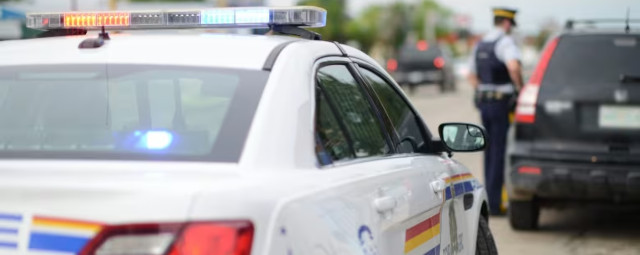 Traffic policing, especially in relation to collisions, is important to neighbourhood safety. In some municipalities firefighters are attending collisions instead of the police. They help the participants with calling a tow and exchanging information but only notify the police if a significant driving offence such as impaired driving is involved.
Traffic policing, especially in relation to collisions, is important to neighbourhood safety. In some municipalities firefighters are attending collisions instead of the police. They help the participants with calling a tow and exchanging information but only notify the police if a significant driving offence such as impaired driving is involved.

The Government and Traffic Policing
I've never felt comfortable with this decision for a number of reasons but even our government has joined in by removing the requirement to report collisions to the police. If they do attend, there is no requirement to complete a report for ICBC in the case of property damage when the amount is less than $10,000. Injury and fatal crash reports are still required.
A Police Officer's View
Morley Lymburner, publisher of Blue Line Magazine, a Canadian trade publication for the police writes on the subject. He says:
A traffic officer’s job is to enforce traffic laws to prevent collisions or investigate collisions with a goal toward preventing future ones. This preventative factor should be taken seriously and can be accomplished in a myriad of ways.
A well enforced neighbourhood is a safe neighbourhood, ensuring courteous and patient motorists and obedient pedestrians. If you have neither, you have no functioning traffic officers; the number of collisions and injured citizens is the barometer.
Accuracy of ICBC Crash Data
Without police investigation and reporting, the when and the where of crashes probably doesn't suffer from inaccuracy or omissions. The why is a different matter.
Let's look at a left turn across traffic collision as an example. Clearly, the left turn vehicle got in the way of through traffic. Without the involvement of traffic policing, we will likely not know if failing to yield by the through driver played a part as well.
Identification and Correction of Problems
In our patrol area, whenever it rained heavily there were crashes in one location. Without traffic policing, it might have taken much longer to identify that centre median drainage was the cause and needed correction.
Prevention Is Important
Effective traffic policing is important to minimize the behaviour that leads to crashes. Reduce the ability to qualify that behaviour by not investigating crashes and the effectiveness is reduced. How do you target bad driving behaviour if you don't know what it is?
Learn More
Share This Article
- Log in to post comments
Comments
Yes, police “opting” not to attend collisions is something that has concerned me. As a society we seem to blindly accept policing policies even if they don't make sense.
Does it make sense for police to look for violations on our highways, because such violations MIGHT cause collisions, but when a collision occurs (with the exception of the most serious) they don't attend, thus any violation that has CAUSED the collision goes un-investigated by an authority that can issue a ticket.
I'm of the mind that, similar to the policy of "fines double in construction zones", violations that cause collisions should also at least double.
Police tout the mantra, "if we attend collisions, we are just doing ICBC's job for them". That idea demonstrates how little police know about civil law and how inflated their egos are. Trust me ICBC doesn't rubber stamp a police investigation as their own. The most valuable part of police attending a collision is the police member's observations at the scene, locations of vehicles, perhaps a photo and perhaps identifying witnesses that may not have been recorded by those involved in the collision to supply to ICBC. Such independent witnesses can be of a great value to the ICBC investigation for the benefit of determining the actual facts of the collision.
So the police attending a collision, has the potential of punishing an offender that caused a collision and helping identify witnesses that will help ICBC to get to the truth to resolve the civil issues. Seems important to me.
All this lip service of how serious traffic violations are and the police want to prevent collisions, when in fact, the one area they don’t involve themselves in are the actual collisions that occur.
- Log in to post comments

Ticket for potential of a collision, but not when it happens